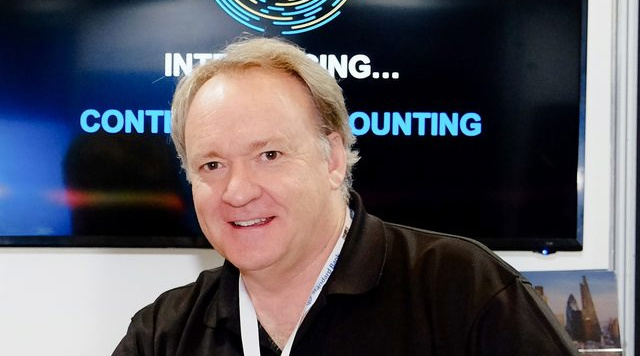BlackLine’s Mike Hibbert: When it comes to month-end, some companies still do it the old-fashioned way.
For many, the financial close process is still a manually driven one that is highly reliant on spreadsheets. Mike Hibbert, BlackLine’s regional director for Africa believes that now is the time for companies to adopt finance technology and automate the critical financial close processes.
BlackLine reduces reliance on Excel spreadsheets by automating and organising the finance and accounting processes so that close periods are less stressful, error-free and delivered on time. “We provide an end-to-end solution for the financial close. Gartner refers to this area of business as the last mile of finance. BlackLine is a unique solution and we’re incredibly good at what we do,” says Mike.
When Mike joined BlackLine over six years ago, South Africa was behind the curve when it came to business applications in the cloud. There were some concerns regarding cloud adoption around security and he spent time educating the market about the ‘military grade security’ that BlackLine employs to keep customer data safe.
While the US have been early adopters of cloud based finance technology, Mike sees that both the EMEA and APAC regions are quickly catching up. “Today, organisations have the confidence to put their data into the cloud. Larger, consumer brands have led the way and this has reassured the rest of the market,” says Mike. However, there is still a sense of cloud apprehension amongst South Africa’s public sector companies, mainly driven by data sovereignty policies.
Operating in a pandemic
The rapid shift in operating models as a result of the current pandemic has shone a light on where many companies fall short. It has highlighted weaknesses in traditional practices where change was long overdue. BlackLine has continued to grow amid the pandemic. “The pandemic has, in fact, been an enabler and a growth driver for BlackLine as many organisations are now working with an all-remote finance team, and are taking the opportunity to redesign their processes to be less manual,” says Mike.
This year BlackLine welcomed their largest client in Africa to date, an opportunity which was brought forward because of Covid-19. “We have been driving the concept of the ‘virtual close’ – that it is possible to work at anytime, anywhere and many of our newer clients have embraced this concept. Things won’t completely revert once this pandemic has passed, as the virtual office has become the new normal for many companies,” says Mike.
BlackLine staff have also been working remotely since the early days of the pandemic. “We were able to offer our clients assistance by opening up aspects of our platform to support them through this trying time,” adds Mike. The collaborative, automated and easy implementation nature of solutions on the platform brought some relief to clients when they needed it most. Getting the transparency and visibility with automated workflow across the close was critical while they were facing disruption in other areas of their business.
Into the future
BlackLine invests millions of dollars each year on R&D, helping to make the user experience intuitive and easy for accountants to use. Training is embedded into the platform and there is a proactive user community forum where questions, answers and experiences are shared.
The Annual Conference ‘Beyond the Black’ in 2020 is totally virtual and totally free and with over 12,500 registered delegates it is proof the BlackLine family is continually growing.
“BlackLine has developed a platform for accountants by accountants. Meaning the BlackLine platform was not designed by technologists alone, but by those who understand the financial close process. As you would expect, once a company adopts the technology they rarely want to return to manual work and risky Excel, so customer retention rate is extremely high,” says Mike.
The company is always seeking new ways to add value and broaden the solutions for the finance community. This October BlackLine announced the acquisition of AI-based cloud platform Rimilia to expand the capabilities of the platform into Accounts Receivable (AR) automation. Rimilia provides AR automation, helping control cash flow and collection in real time. It simplifies the order-to-cash process via machine learning and AI.
Productivity unleashed
BlackLine’s solutions can alleviate 30 to 40 percent of the reconciliation process workload from day one. This automation typically goes up to 70 percent and beyond over time as the software is configured to learn and take in a company’s unique operating environment. “Right now, we live in a world where technology is advancing at an exponential rate and the traditional role of an accountant is being revolutionised. With automation, and as technology becomes increasingly sophisticated and present in all aspects of businesses, accounting professionals are seeing a shift from manual accounting towards more strategic and analytical roles,” adds Mike.
The Coca-Cola Company implemented BlackLine throughout its global operations. This reduced the number of employees involved in reconciliation by 55 percent. Before BlackLine, the monthly close process required the help of 800 finance staff across shared services, manufacturing plants and business units, spending 14,000 hours a month on reconciliations alone. By using BlackLine, the company reduced the number of employees who were involved in manual and routine reconciliations to 360. The company increased its productivity by allowing employees to focus on analysis.
BlackLine was founded in 2001 and today BlackLine has more than 3,200 customers with users in over 130 countries. The company delivers a high ROI for its clients and is a recognised Gartner leader. More than a quarter of a million accountants log on to BlackLine every month.










